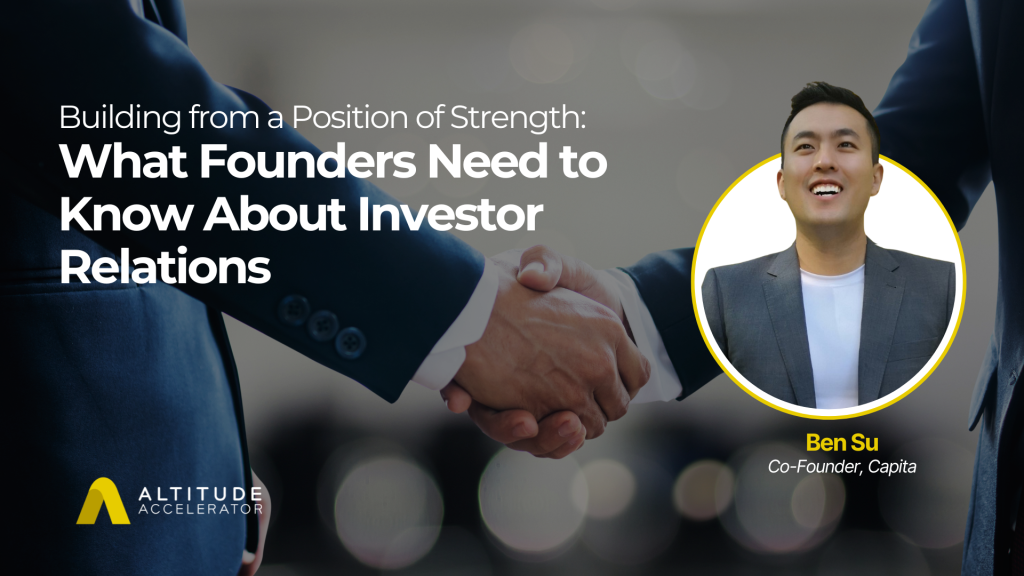Home » Essential Insights for Founders on Investor Relations
Essential Insights for Founders on Investor Relations

Negotiating with investors is a complex and high-pressure experience for early-stage founders, often leading to confusion and fear of compromising their vision and control. Recent discussions with Ben Su, co-founder of Capita, highlight essential strategies for managing these relationships and understanding fundraising dynamics.
Su emphasizes the power imbalance in negotiations, where inexperienced founders may not recognize predatory terms from well-resourced investors. For instance, some incubators inflate the value of their services to extract significant equity stakes, jeopardizing a founder's control and perceived credibility in future fundraising rounds. This dilution can diminish trust from later investors and complicate subsequent funding efforts.
One alternative is the SAFE (Simple Agreement for Future Equity), created by Y Combinator. SAFEs defer valuation to a future round, allowing founders to maintain control while attracting investment. However, Su notes that many Canadian investors are less familiar with SAFEs, often preferring traditional share purchase agreements that provide established rights but can restrict a startup's agility.
Su also warns against accepting offers that require excessive early equity dilution. For example, giving up 30% equity for $500,000 at a pre-revenue stage is risky when a more favorable benchmark from Y Combinator exists, suggesting 7% equity for the same amount. Such decisions can limit future funding options and demotivate teams if founders' stakes drop significantly in later rounds. He advises founders to shop around for better terms, emphasizing the importance of retaining their equity for long-term growth.
In discussing term sheets, Su stresses the significance of closely examining the terms laid out, which are generally non-binding but set the tone for investor relationships. Founders should leverage competitive offers to negotiate better deals while being mindful of their reputations in the startup community.
The relationship with investors is like a partnership—founders must communicate openly and ensure their interests are aligned. Su advocates for strong agreements between co-founders and investors, promoting mechanisms like reverse vesting to protect the company's equity against departing founders.
When dealing with vendors, particularly in software development, founders should be cautious of exclusivity and intellectual property (IP) terms that could undermine their business. Contracts should guarantee clear ownership of IP to avoid future complications.
As for valuations, Su advises against relying solely on speculative financial projections for pre-revenue companies. Investors are often more interested in the founders and their problem-solving abilities than raw numbers. Demonstrating a strong market fit can attract investment despite a lack of immediate revenue.
Ultimately, fostering healthy founder-investor relationships hinges on transparency, trust, and shared goals. Monthly updates on company performance, both successes and challenges, help build rapport and mutual understanding. This strategic approach can empower founders to negotiate better terms and maintain control, essential for long-term success.
In summary, the negotiation process can seem daunting, but with informed strategies and careful planning, founders can navigate investor relations more successfully. Sharing experiences and insights, as Su encourages, lays the groundwork for future growth and resilience in startup ventures. Understanding these intricacies is crucial for founders aiming to secure funding without compromising their vision.
Altitude Accelerator
https://altitudeaccelerator.ca/
Altitude Accelerator is a not-for-profit innovation hub and business incubator for Brampton, Mississauga, Caledon, and other communities in Southern Ontario. Altitude Accelerators’ focus is to be a dynamic catalyst for tech companies. We help our companies grow faster and stronger. Our strength is our proven ability to foster growth for companies in Advanced Manufacturing, Internet of Things, Hardware & Software, Cleantech and Life Sciences. Our team consists of more than 100 expert advisors, industry, academic, government partners. The team helps companies in Advanced Manufacturing, Internet of Things, Hardware & Software, Cleantech and Life Sciences to commercialize their products and get them to market faster.


